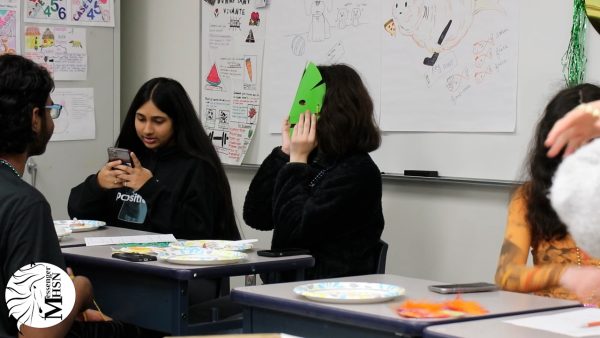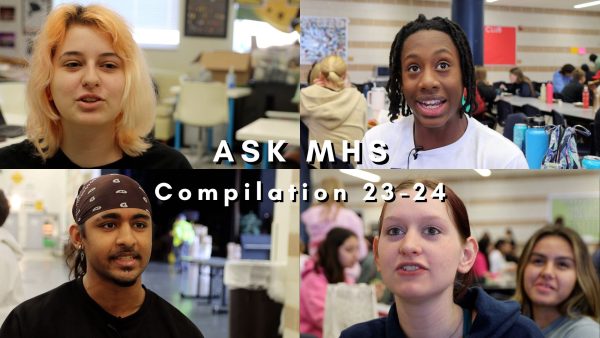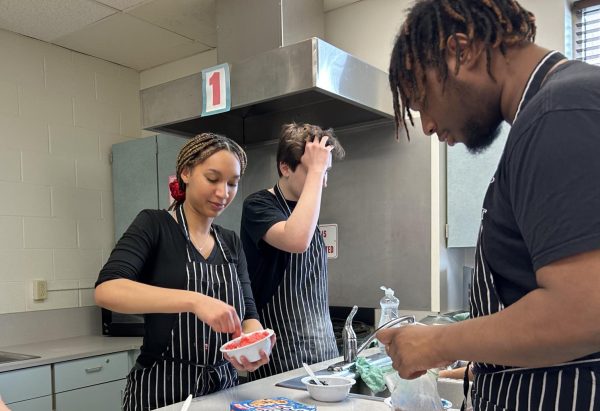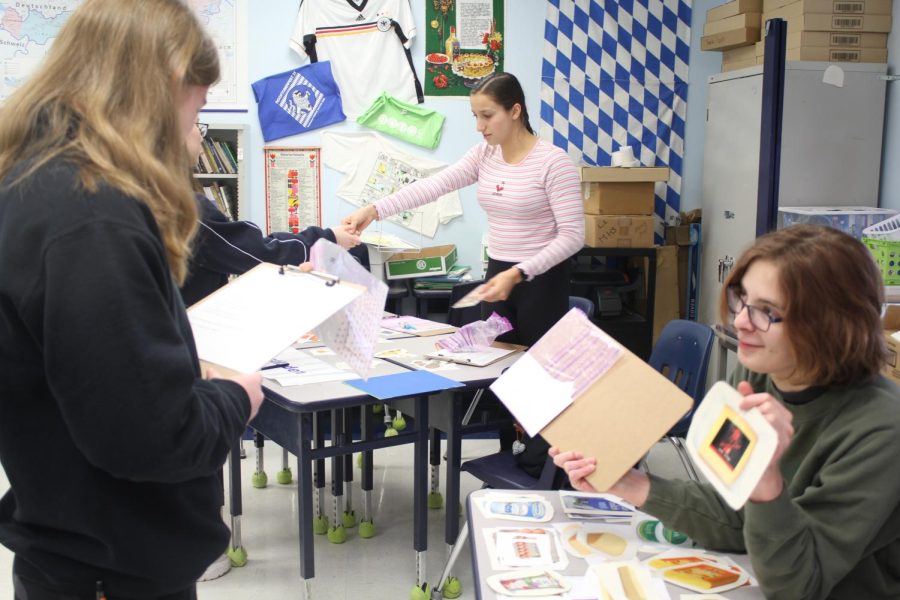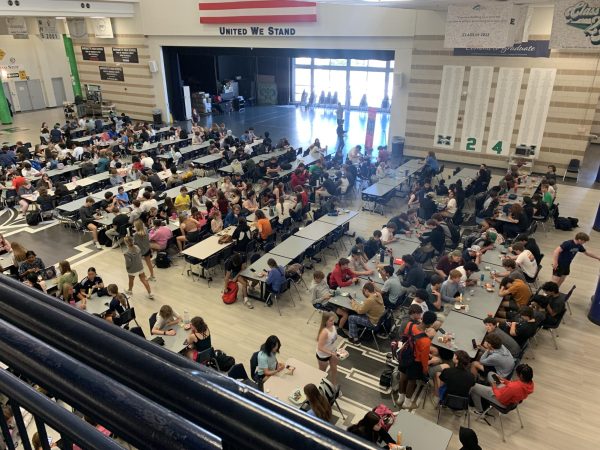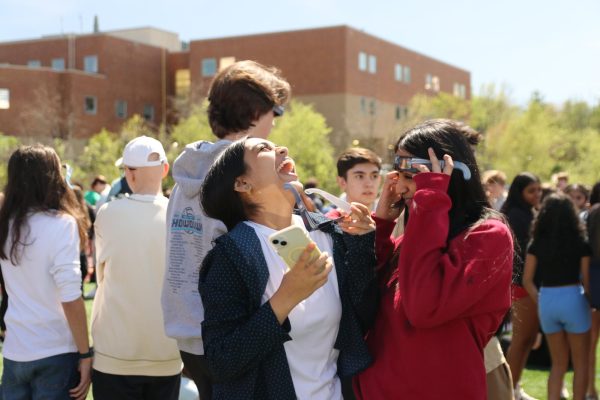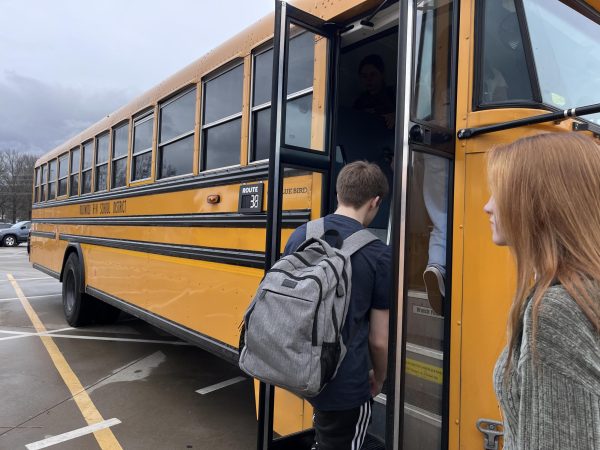Class Simulates German Market
Media by Aubrey Lacavich
Emmaline Little, sophomore, is selling dairy in a German Market simulation. The simulation was created to foster long-lasting discourse to help students improve their German communication skills.
Lauren Nickle, sophomore, is selling produce in a simulated market during her German class geared toward improving long-term communication skills.
The German 2 and 3 class is simulating an open air market that features imports, in which students are only allowed to communicate in German. It’s a one time event, hosted on Wednesday, Feb. 8, in the classroom.
“We have been doing smaller speaking assignments in class and preparing our vocab terms and food words,” Nickles said.
The market features only food, with produce, dairy, a convenience store, drink store and a bakery. Each student got a shopping list and was tasked to go around completing their list, while simultaneously selling from their own store.
Cameron Buckingham, sophomore, is in charge of a “Dollar Tree” store that sells goods like candy and plates. He said the market activity is a fun way to create a foreign setting.
“It gives us good exposure,” Buckingham said. “It will help us learn more German and how to actually use it outside of class.”
So it really gets set in their mind by having an active market of doing a lot of speaking back and forth on when they’re traveling and when they’re going.
— Kim Hotze
Emmaline Little, sophomore, is selling dairy products for her market. She took German because she loves languages and said this will benefit her if she ever goes to Germany.
“The basic asking and answering is easy, but the hardest part will be varying the sentence structure,” Little said.
Kim Hotze, German teacher, said she hopes students are able to gain more confidence when speaking with one another in order to have better interactions with native speakers if they were to plan a trip to Europe.
“Most of the sales and purchasing are the same phrases, just a few words,” Hotze said. “So it really gets set in their mind by having an active market of doing a lot of speaking back and forth on when they’re traveling and when they’re going.”
Hotze said that in order to receive full credit for the assignment, students must speak German throughout the entirety of the class.
“You can communicate any way we can,” Hotze said. “We’re not looking at grammar. We’re not looking at spelling. We’re looking at pronunciation good enough that they can understand each other. That’s the big thing.”
Emmaline Little, sophomore, is selling dairy in a German Market simulation. The simulation was created in hopes of fostering long lasting discourse in order to help students improve their German communication skills. Photograph by Aubrey Lacavich
Your donation will support the student journalists of Marquette High School. Your contribution will allow us to purchase equipment and cover our annual website hosting costs. You may become a PATRON by making a donation at one of these levels: White/$30, Green/$50, Blue/$100. Patron names will be published in the print newsmagazine, on the website and once per quarter on our social media accounts.

Pranav Sriraman, senior, is the Productions Editor for the Marquette Messenger and Associate Producer for MHS News during the 2022-2023 school year. Outside...
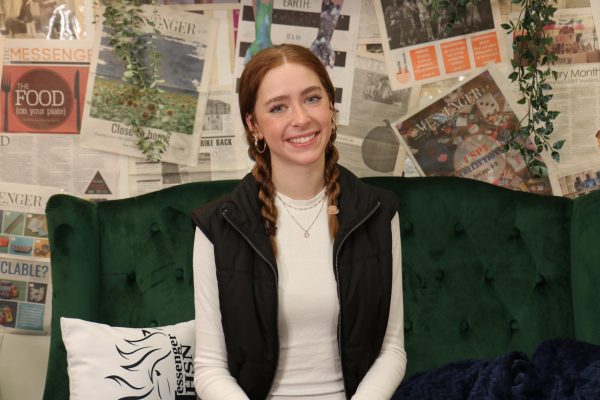
This will be Aubrey's 3rd year with the Messenger. This year she is a Sports Editor. She is involved in the Environmental Club, and the Marquette Orchestra....



